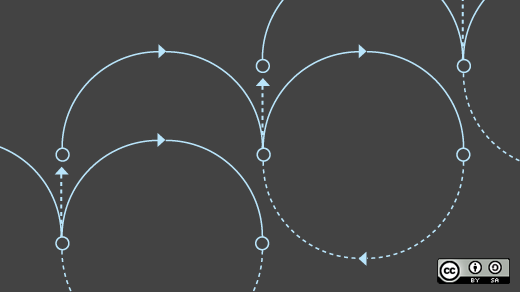Not long ago, the working definitions of "open government" and "open data" barely overlapped. Open government was all about holding up government to public scrutiny via Watergate-era methods—namely, making sure that meetings were held in public and that agencies responded to requests for information. Open data was about providing information in formats that computers can understand. Today, open government and open data overlap so substantially that it's routinely necessary to explain that they're different.
Open government increasingly means "open government data," reflecting changes in how people receive information today. Open government laws require that people receive government information upon request, but today people expect to find many types of government information on demand, via Google. Open government laws permit officials to provide a municipal budget as a scanned-in document, but today people expect a spreadsheet. Open government laws require that meetings be public, but today people expect them to be live-streamed and the video archived for later viewing. The Internet mediates our communications with friends, family, and businesses. There's no reason why it shouldn't mediate our communications with government too.
Is a state legislative meeting really open if it's held before dawn, hundreds of miles from thousands of the state's citizens? Are thousands of government emails really open if they're provided as scanned-in PDFs? Is providing a response to a Freedom of Information Act (FOIA) request to just one person—the person who requested the information—really opening up government meaningfully? In the average citizen's experience, does information really exist if you can't Google it?
FOCAS | Waldo Jaquith from Aspen 82 on Vimeo
Gradually, we'll change our open government laws in recognition of this shift in how government information is created and stored, and how people expect to receive it. Fundamentally, that shift will be about including open government data as a core of our definition of "open government." Government data should be published preemptively, rather than upon request via a FOIA request. And a fulfilled FOIA request should be seen not as a success, but as a failure—a failure to have published that information in the first place, so that somebody didn't have to request it.
So, what's the holdup? If open data is such a clear good, of such obvious public, commercial and government benefit, why is adoption slow and spotty?
At the U.S. Open Data Institute, we've identified two significant obstacles to the adoption of open data practices within government:
- The vast majority of government agencies rely on software packages that lack the necessary features to share data; there's no "Export as XML" option in the menu. However much that agency might want to publish open data, they cannot do it if their records management software doesn't make that possible. Opening up government data at scale will require persuading software vendors to modify their software.
- The rhetoric in support of open government data that's successful in the public square (e.g., "we the taxpayers have paid for this data, and we deserve to have it," or "a democratic government has an obligation to be transparent") is nothing short of rude when individuals use it to make demands of individual government employees. In practice, that leads to the offended bureaucrat stonewalling the petulant requester. Instead, we need to demonstrate and document how open data practices can provide government with real benefits in efficiency, cost savings, and time savings. Opening up existing exchanges of data within government can make life easier for public employees. That's a winning argument.
It's time to move beyond discussions like "what is open government?" and "is open data important to government?" and start looking at the reality of how to implement open government in the Internet age.
Originally posted on the Knight Foundation Blog. Reposted under Creative Commons.
View the complete collection of stories for Open Government Week.







2 Comments